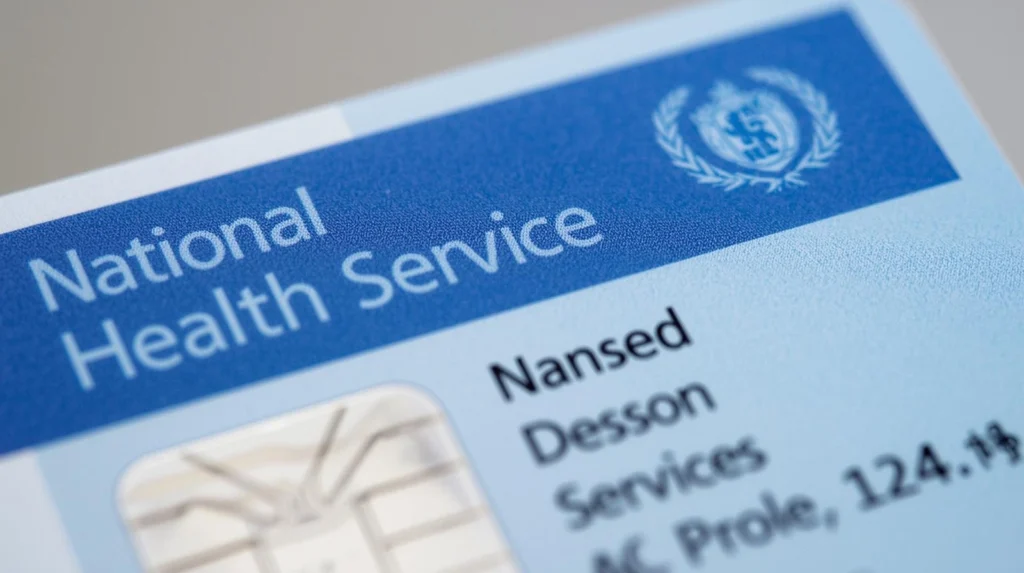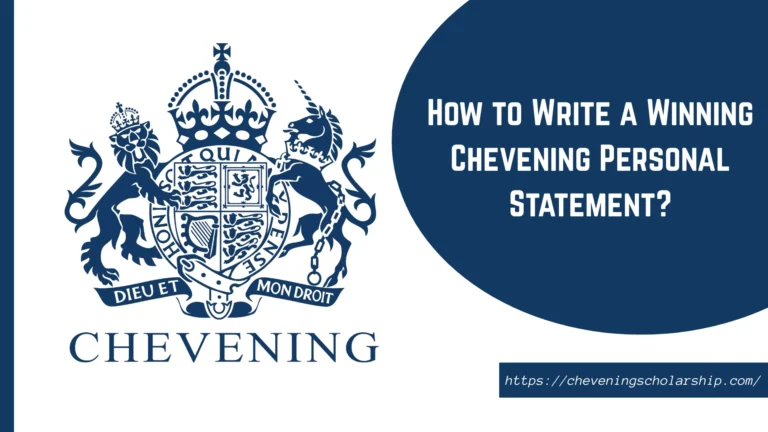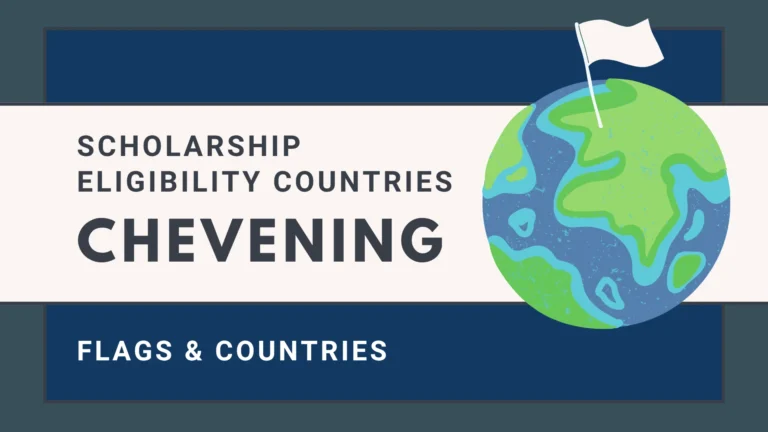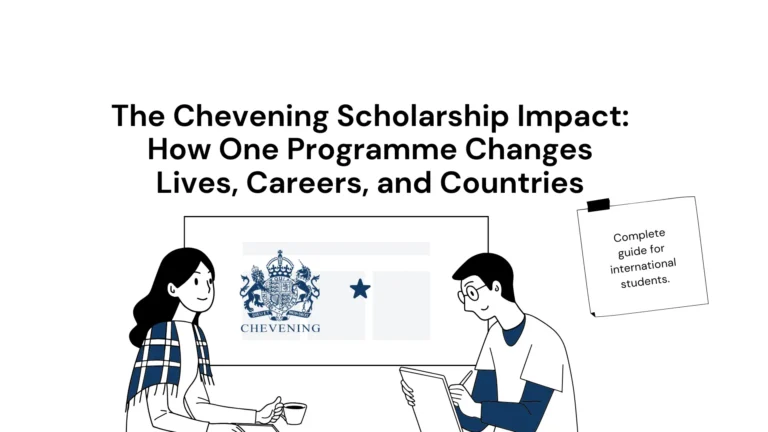Chevening Benefits and Coverage: Everything You’re Actually Getting (It’s More Than You Think)
Let’s Talk Money (And Everything Else You’re Getting)
Here’s a question: What if I told you that winning a Chevening scholarship means you’re about to receive roughly £40,000-50,000 worth of support for one year? Not a loan. Not something you’ll spend the next decade repaying. Just… given to you.
Sounds too good to be true, right?
I get it. When you’re scrolling through scholarship websites at midnight, caffeine-fueled and slightly delirious, phrases like “fully-funded” and “comprehensive coverage” start blurring together. Every scholarship claims to be generous. Every program promises support. But what does Chevening scholarship coverage actually mean in practice?
Let me break it down for you—not in bureaucratic jargon or vague promises, but in actual pounds, real benefits, and honest talk about what you’re getting (and what you’re not). Because understanding the Chevening scholarship benefits isn’t just about knowing you’ll survive in the UK. It’s about understanding the incredible investment being made in you.

The Big Picture: What Does Chevening Scholarship Cover?
Before we dive into line items and allowances, let’s zoom out. The Chevening scholarship financial coverage is designed around one core principle: removing financial barriers so you can focus entirely on studying, networking, and developing as a leader.
You shouldn’t be working night shifts to pay rent. You shouldn’t be stressed about affording textbooks. You shouldn’t be calculating whether you can afford the bus to campus or if you need to walk to save £2.
That’s the philosophy. Now let’s see how it plays out in reality.
The Core Components
The Chevening scholarship benefits package includes:
✓ Full tuition fees (with specific caps for certain programs)
✓ Monthly living stipend
✓ Return airfare to/from UK
✓ Arrival allowance
✓ Departure allowance
✓ Visa application fees
✓ Travel grant for Chevening events
✓ Access to exclusive networking opportunities
Each of these deserves its own deep dive, so let’s get into it.
1. Tuition Fee Coverage: The Big-Ticket Item
Let’s start with the elephant in the room. UK master’s program tuition fees are eye-watering. We’re talking £15,000-30,000+ for international students. For a single year.
The Chevening scholarship tuition fees coverage takes this entire burden off your shoulders. Completely.
How it works:
Chevening pays your university tuition fees directly. You never see this money, and you never have to handle this transaction. The university invoices Chevening, Chevening pays, done.
The details:
- Standard coverage: Most one-year master’s programs are fully covered with no cap
- MBA exception: MBAs have a specific tuition fee cap of £22,000 (as of recent cycles)
- Course changes: If you change courses after acceptance, funding may be affected
- Additional fees: Some programs have extra costs like field trips, special materials, or lab fees—these typically aren’t covered
What this means practically:
You could study at Oxford, Cambridge, LSE, Imperial—wherever you get accepted and choose. The tuition cost difference between universities doesn’t impact you. Choose based on program quality and fit, not price tag.
Important nuance about the Chevening tuition fee cap:
If you’re pursuing an MBA or certain specialized programs with fees exceeding the cap, you’re responsible for the difference. For example, if your MBA costs £28,000 and the Chevening cap is £22,000, you need to cover the remaining £6,000 yourself.

2. Living Allowance: Your Monthly Lifeline
This is what you’ll actually interact with daily. The Chevening scholarship living allowance—also called the Chevening scholarship stipend or maintenance allowance—is deposited into your UK bank account monthly.
Current rates (2024/25 cycle):
The Chevening allowance details vary slightly by location, but you’re looking at approximately:
- London: ~£1,347 per month
- Outside London: ~£1,092 per month
Annual total: Roughly £13,000-16,000 depending on location
Why location matters:
The Chevening scholarship allowance rates reflect UK cost of living differences. London is significantly more expensive, so the stipend is higher. If your university is in Birmingham, Manchester, Edinburgh, or anywhere outside Greater London, you’ll receive the lower rate—but your costs will be proportionally lower too.
What the Living Allowance Actually Covers
The Chevening personal allowance is meant to cover:
- Rent/accommodation
- Food and groceries
- Utilities (electricity, gas, internet)
- Transportation
- Personal expenses
- Course materials and books
- Social activities
The honest reality check:
Can you live on this stipend? Yes, absolutely. Will you be living large? No. Think of it as a comfortable student lifestyle, not luxury living.
Let me break down typical monthly expenses for context:
| Expense Category | London (£) | Outside London (£) |
|---|---|---|
| Rent (shared accommodation) | 600-800 | 400-600 |
| Food & Groceries | 200-300 | 150-250 |
| Transportation | 100-150 | 50-100 |
| Utilities & Phone | 50-80 | 40-70 |
| Course Materials | 50-100 | 50-100 |
| Personal & Social | 150-250 | 100-200 |
| TOTAL | 1,150-1,680 | 790-1,320 |
As you can see, the stipend is calibrated to cover these essentials with a small buffer. You won’t be eating at Michelin-starred restaurants weekly, but you also won’t be surviving on instant noodles.
When the Stipend Arrives
Your Chevening scholarship monthly stipend is typically paid in advance at the beginning of each month. First payment usually arrives within the first few weeks of your arrival, though there can be delays while banking gets sorted.
Pro tip: Bring some personal funds (£1,000-2,000) to cover your first few weeks before the stipend arrives. This cushion reduces stress significantly.
3. Travel Allowances: Getting There and Back
One of the most tangible Chevening scholarship benefits is that you don’t pay for international flights. The Chevening scholarship travel allowance covers your journey to and from the UK.
What’s included:
Return Airfare
Chevening provides a return economy flight ticket from your home country to the UK. This is typically handled through their designated travel agency.
Key points:
- Economy class only: No upgrades to business or first class
- Fixed route: From your home country capital/major city to London (usually)
- Set dates: Around the start and end of your program
- One return trip: You can’t use this for multiple visits home
The Chevening scholarship travel expenses calculation:
For most countries, this translates to £800-2,000 worth of flights, depending on your location. If you’re from Pakistan, Nigeria, or Indonesia, that’s easily £1,000+. From South America? Could be £1,500-2,000.
Travel Top-Up Allowance
Here’s something many applicants don’t know about: the Chevening scholarship travel top-up.
If your home country is particularly remote or flights are exceptionally expensive, Chevening may provide additional funding. This isn’t automatic—it’s assessed case-by-case for countries where standard travel costs exceed typical ranges.

4. Arrival Allowance: Your Welcome Cushion
The Chevening scholarship arrival allowance is a one-time payment designed to help you settle in during your first weeks in the UK.
Amount: Typically around £1,200-1,300
Purpose:
- Initial accommodation costs (deposit, first month’s rent)
- Essential purchases (bedding, kitchenware, winter clothing)
- Travel from airport to your university city
- Setting up your life (phone SIM, grocery shopping, transportation pass)
When it arrives:
Usually paid alongside or shortly after your first monthly stipend. Again, this is why bringing personal buffer funds is smart—arrival costs often happen before this allowance comes through.
What the Chevening scholarship arrival support covers in practice:
Think of this as your “getting started” fund. Most UK landlords require a deposit (usually one month’s rent) plus first month’s rent upfront. If your rent is £500, that’s £1,000 right there. The arrival allowance handles this plus gives you breathing room for essentials.
5. Departure Allowance: Your Exit Grace
At the other end of your scholarship year, there’s the Chevening departure allowance.
Amount: Typically around £1,200-1,300 (similar to arrival allowance)
Purpose:
- Final rent payments and deposit recovery waiting period
- Shipping personal items home
- Travel to airport
- Final expenses before leaving UK
Why it exists:
When you’re wrapping up, you’ll have odd expenses. Your landlord might take weeks to return your deposit. You’ve accumulated books, clothes, and belongings you want to ship home. You need to stay a few extra days after your course ends to handle logistics. The departure allowance covers this awkward transition period.
6. Visa Fees: Bureaucracy, Covered
Here’s a cost many people forget about: UK visa application fees for international students are expensive—currently around £490 for a Tier 4 student visa (or equivalent).
The Chevening scholarship visa fee coverage handles this completely. You don’t pay for:
- Your visa application fee
- Immigration Health Surcharge (IHS)—this one’s huge, as it’s typically £470+ per year
Total saved: Roughly £900-1,000 in visa-related costs
How it works:
You pay the fees upfront during your application, then Chevening reimburses you. Save your receipts and follow their reimbursement process carefully.

7. The Travel Grant: Chevening Events Across the UK
One of the underrated Chevening scholarship benefits in UK is the travel grant for attending official Chevening events.
Throughout your year, Chevening organizes:
- Welcome events
- Regional networking sessions
- Professional development workshops
- Cultural experiences
- Farewell ceremonies
These events are often in London or other cities—potentially far from your university. The travel grant covers your transportation to attend these mandatory and optional events.
Why this matters:
These events are where the real networking magic happens. You’ll meet fellow Chevening scholars from 160+ countries, Chevening alumni who are now in impressive positions, and UK professionals in your field. The connections you make at these events often prove more valuable than classroom learning.
Not having to worry about affording the train ticket to London means you’ll actually attend—and benefit fully.
8. Health Coverage: A Bit Complicated
Now we get to one of the trickier areas: Chevening scholarship health coverage.
What’s definitely covered:
- Immigration Health Surcharge (IHS) as part of your visa fees
- This gives you access to NHS (National Health Service) throughout your stay
What NHS covers:
- GP appointments (free)
- Emergency care (free)
- Hospital treatment (free)
- Some prescriptions (small charge, around £9.65 per item)
What NHS doesn’t cover well:
- Dental care (can be expensive)
- Optical care (eye tests, glasses)
- Certain specialist treatments
- Some mental health services have long waiting lists
The gap:
While the Chevening scholarship insurance situation provides NHS access, some scholars choose to purchase additional private health insurance for dental, optical, or faster access to specialists. This would be your own expense.
The Chevening scholarship health benefits are solid for basic healthcare but not comprehensive by international private insurance standards.

9. What’s NOT Covered: The Reality Check
Alright, let’s talk about Chevening scholarship coverage exclusions—the things you’ll need to budget for yourself.
Accommodation Deposits
While the stipend covers monthly rent, that initial deposit (usually one month’s rent) comes from your arrival allowance—which might not arrive before you need accommodation. Bring buffer funds.
Course-Specific Costs
Some programs require:
- Field trips
- Specialized software
- Lab materials
- Professional accreditation exams
- Conference attendance fees
These usually aren’t covered. Check your specific course requirements.
Personal Travel
Want to explore Europe during breaks? Weekend trips to Scotland? That’s on you. The stipend can stretch to cover some travel if you’re careful, but Chevening doesn’t fund tourism.
Family Costs
The Chevening scholarship dependent allowance? It doesn’t exist. Chevening only funds you, not dependents. If your family comes with you, you’re covering their costs entirely—and the visa alone for a dependent can be £1,500+.
| Expense | Covered by Chevening? | Your Responsibility? |
|---|---|---|
| Tuition fees | ✓ Yes (with MBA cap) | Only if above cap |
| Monthly living costs | ✓ Yes (stipend) | Managing budget |
| Flights to/from UK | ✓ Yes | Any extra trips |
| Visa fees | ✓ Yes | Reimbursement process |
| NHS access | ✓ Yes | Additional insurance optional |
| Accommodation rent | ✓ Yes (via stipend) | Initial deposit timing |
| Course materials | ✓ Yes (via stipend) | Specialized equipment |
| Personal travel | ✗ No | Entirely your cost |
| Dependent costs | ✗ No | Entirely your cost |
| Extra-curricular trips | ✗ No | Entirely your cost |
10. The Hidden Benefits: Beyond the Money
Here’s where Chevening scholarship benefits for international students get really interesting. The financial package is generous, but the non-monetary benefits might be even more valuable.
Access to the Chevening Network
You become part of a 50,000+ strong global network of Chevening alumni. This includes:
- Government ministers
- CEOs and business leaders
- Journalists and media professionals
- Academics and researchers
- Social entrepreneurs and activists
What this means practically:
Need advice on breaking into policy work? There’s probably a Chevening alum in your country’s government who’ll take your call. Want to understand business opportunities in Southeast Asia? Connect with Chevening alumni there. Considering a career pivot? The network has people who’ve done exactly what you’re considering.
This Chevening scholarship support network is arguably worth more than the £40,000+ financial package.
Professional Development Opportunities
The Chevening scholarship program benefits extend to:
- Leadership training workshops
- Public speaking coaching
- Career development sessions
- Introduction to UK organizations in your field
- Mentorship opportunities
These aren’t mandatory add-ons you pay extra for—they’re part of your scholarship.
University Life Benefits
As a Chevening scholar, you often get:
- Recognition from your university (helpful for building relationships with faculty)
- Priority for certain networking events
- Access to university careers services
- Alumni networks from your UK university
The Prestige Factor
Let’s be honest about this. “Chevening Scholar” on your CV opens doors. It signals to employers and organizations:
- You’re vetted and exceptional (only ~3% of applicants get selected)
- You have leadership potential
- You can compete internationally
- The UK government believes in you
The Chevening scholarship financial support ends after your year. This reputational benefit lasts your entire career.
Regional Variations: Does Location Change Your Benefits?
One question that comes up: Do Chevening scholarship benefits vary by country or university location?
What stays the same:
- Tuition coverage
- Visa fee coverage
- Travel allowance structure
- Basic program benefits
What varies:
- Monthly stipend (London vs. outside London)
- Occasionally, arrival/departure allowances may have minor adjustments
- Travel costs from your specific country
The core Chevening scholarship funding benefits remain consistent regardless of whether you’re from Kenya or Cambodia, whether you study in Edinburgh or London.
How the Money Actually Flows: Payment Timeline
Understanding when you receive Chevening scholarship support services and funds helps you plan.
Pre-Arrival:
- Visa fees: You pay, then get reimbursed
- Flights: Booked and paid by Chevening directly through their travel agency
Upon Arrival:
- First stipend payment: Within first 2-3 weeks (can vary)
- Arrival allowance: Typically with first stipend
Monthly:
- Living stipend: Paid at start of each month throughout your program
- Typically runs September to September (12 payments)
During the Year:
- Travel grants: Processed as you attend Chevening events
- Tuition: Paid directly to university (you never handle this)
At Departure:
- Departure allowance: Paid in your final month
- Return flight: Scheduled and paid by Chevening
Maximizing Your Benefits: Pro Tips
You’re getting a generous package. Here’s how to make the most of it.
Budget Strategically
The Chevening scholarship living costs coverage is sufficient, but that doesn’t mean it’s infinite. Smart scholars:
- Track spending in the first few months to understand their patterns
- Take advantage of student discounts (Totum card, university discounts)
- Cook at home more than eating out
- Buy secondhand textbooks when possible
- Use university facilities (gym, printing, resources) that you’re entitled to
Leverage the Network Aggressively
The Chevening scholarship maintenance allowance covers your essentials, but the network can multiply your opportunities exponentially. Actively:
- Attend every Chevening event possible
- Connect with alumni in your sector
- Engage in the online Chevening community
- Seek out mentorship from senior alumni
Apply for Additional Funding Where Possible
The Chevening scholarship additional funding question comes up often. While Chevening is your primary support, you can:
- Apply for university-specific bursaries or grants
- Seek conference travel grants from your department
- Apply for research funding from academic societies
- Pursue small grants for specific projects
Check Chevening’s policies on external funding—some is fine, some might conflict. Always get approval first.
Plan Your Academic Travel
If your program includes optional field trips, study tours, or research opportunities requiring extra costs, plan these into your budget early. The stipend can stretch if you’re strategic, but last-minute expenses are harder to absorb.
Comparing Chevening to Other Scholarships: How Generous Is It Really?
Context helps. Let’s look at how Chevening scholarship full coverage stacks up against alternatives.
| Scholarship | Tuition | Living Costs | Travel | Duration | Restrictions |
|---|---|---|---|---|---|
| Chevening | Full (cap for MBA) | ~£13-16k/year | Round-trip | 1 year | Must return home 2 years |
| Commonwealth | Full | Similar | Round-trip | 1-3 years | Must return home |
| Fulbright (US) | Full | Similar | Round-trip | 1-2 years | Must return home 2 years |
| DAAD (Germany) | Full | €850-1,200/month | One-way | 1-2 years | Varies |
| Rhodes (Oxford) | Full | ~£18,000/year | Round-trip | 2-3 years | None after completion |
| Gates Cambridge | Full | ~£20,000/year | Varies | 1-4 years | None after completion |
Chevening is competitive with top-tier scholarships while having the advantage of:
- Broader country eligibility
- More program flexibility
- Stronger professional (vs. purely academic) focus
- Established global network
It’s not the most generous financially (Rhodes and Gates Cambridge provide more), but it’s exceptionally comprehensive for a one-year master’s program.
The True Cost of Living in the UK: Will the Stipend Be Enough?
Let’s get granular because this is what everyone really wants to know about Chevening scholarship UK living cost coverage.
London Reality
Rent: You’ll likely pay £600-900/month for a room in shared accommodation in zones 2-4. Central London is unaffordable on the stipend alone.
Food: £200-300/month is doable if you cook primarily at home and shop at budget supermarkets (Lidl, Aldi, Tesco basics).
Transport: £135/month for a young person’s Oyster card (zones 1-2) or cycle/walk when possible.
Bottom line: Tight but manageable in London if you’re disciplined. You won’t save money, but you’ll cover essentials comfortably.
Outside London Reality
Rent: £400-600/month for shared accommodation in cities like Manchester, Edinburgh, Birmingham, Cardiff.
Food: £150-250/month with similar cooking and shopping habits.
Transport: £50-80/month for local bus pass, or less if you cycle.
Bottom line: More comfortable outside London. You might even save small amounts for travel or emergencies.
The Chevening scholarship cost of living calculation:
| City | Avg. Monthly Costs | Chevening Stipend | Monthly Buffer |
|---|---|---|---|
| London | £1,400-1,600 | £1,347 | -£50 to +£0 (tight) |
| Manchester | £1,000-1,200 | £1,092 | +£0 to +£90 |
| Edinburgh | £1,100-1,300 | £1,092 | -£50 to +£0 |
| Birmingham | £950-1,150 | £1,092 | +£0 to +£140 |
| Cardiff | £900-1,100 | £1,092 | +£0 to +£190 |
Takeaway: You can live on the stipend everywhere, but you’ll have more flexibility and comfort outside London.
Special Circumstances: When Benefits Might Change
There are situations where your Chevening scholarship financial coverage might be affected:
Course Changes
If you switch universities or programs after accepting your scholarship, your tuition coverage might need re-evaluation. If the new program costs significantly more, you might lose funding or need to cover the difference.
Program Extensions
If you fail modules and need extra time to complete your degree, Chevening typically won’t extend your stipend. You’ll need to cover additional living costs yourself.
Early Departure
Leave the program early (voluntarily or due to academic failure), and Chevening may require you to repay portions of the scholarship.
Breaking Return Requirement
If you don’t return home for the required two years, you’ll likely have to repay the scholarship and may face complications with future UK visas.
Deferred Scholarships
If you defer your scholarship to the following year, the Chevening scholarship deferred allowance and benefits typically transfer, but confirm specifics with Chevening as policies can vary.
Hidden Costs Nobody Warns You About
Beyond the official Chevening financial coverage, let’s talk about unexpected expenses that catch scholars off-guard:
Winter Clothing: If you’re from a warm climate, you’ll need proper winter gear. Budget £200-400 for a decent coat, boots, and warm layers.
University Application Fees: Before you even get the scholarship confirmed, you pay £50-100 per university application (×3 universities = £150-300).
Social Expectations: Chevening organizes events where you’ll want to look presentable. Occasional dinners, networking events, and social outings add up.
Phone and Data: UK mobile plans run £10-30/month. Not huge, but it’s a cost.
Miscellaneous Life: Haircuts, toiletries, occasional medicine, birthday gifts for new friends, emergency expenses—life happens.
Buffer fund recommended: £1,500-2,000 in personal savings beyond what Chevening provides gives you peace of mind.
Making It Work: Real Scholar Budgets
Let me show you actual monthly budgets from Chevening scholars I know (names changed for privacy).
Case 1: Amara in London (LSE)
Monthly stipend: £1,347
Spending:
- Rent (Zone 3, shared flat): £750
- Food: £250
- Transport: £135
- Utilities/phone: £70
- Books/materials: £40
- Social/personal: £100
- Total: £1,345
Verdict: Living paycheck to paycheck but managing. Uses library books instead of buying. Cooks almost all meals. Doesn’t save anything but isn’t accumulating debt.
Case 2: James in Manchester (University of Manchester)
Monthly stipend: £1,092
Spending:
- Rent (shared house): £500
- Food: £200
- Transport: £60
- Utilities/phone: £60
- Books/materials: £50
- Social/personal: £150
- Total: £1,020
Verdict: Comfortable with £70/month buffer. Can afford occasional weekend trips. Less stressed about money. Saves buffer funds for Christmas trip to Scotland.
Case 3: Priya in Edinburgh (University of Edinburgh)
Monthly stipend: £1,092
Spending:
- Rent (university accommodation): £650
- Food: £180
- Transport: £40 (cycles mostly)
- Utilities/phone: £50
- Books/materials: £30
- Social/personal: £120
- Total: £1,070
Verdict: Comfortable budget with £20/month flex. Uses university facilities extensively. Bikes everywhere. Managed to save small amounts for spring break travel.
Pattern: The stipend works. You won’t be wealthy, but you’ll live like a typical UK graduate student—which is the entire point.
Accommodation: Your Biggest Single Expense
Since rent will consume 40-60% of your stipend, let’s dive into Chevening scholarship accommodation realities.
Does Chevening cover accommodation?
Not directly. Your monthly stipend is meant to cover rent, but you find and pay for your own place.
Options:
1. University Accommodation
- Pros: Convenient, includes bills often, instant community
- Cons: Can be more expensive, less independence
- Cost: £500-800/month depending on university and location
2. Private Shared Housing
- Pros: Usually cheaper, more independence, wider location choices
- Cons: Need to find flatmates, handle bills separately, contracts can be tricky
- Cost: £400-750/month depending on location
3. Private Studio/One-Bed
- Pros: Total privacy and independence
- Cons: Significantly more expensive, often exceeds stipend coverage for rent alone
- Cost: £800-1,500+/month—generally unaffordable on stipend alone
Recommendation: Shared accommodation (university or private) is the realistic choice for most Chevening scholars. It’s also better for networking and integration.
The Chevening Experience: More Than Benefits
Here’s what gets lost when we obsess over Chevening scholarship stipend rates and coverage percentages: This scholarship is designed to be transformative, not just educational.
What Money Can’t Capture
1. The Identity Shift
You go from being “person from [your country]” to “Chevening Scholar”—a globally recognized status that changes how people perceive and engage with you.
2. The Confidence Boost
Knowing a rigorous selection process chose you from 65,000+ applicants fundamentally alters your sense of what you’re capable of.
3. The Network Effects
That connection you make at a Chevening event who becomes a collaborator on a project five years later? The mentor who opens doors you didn’t know existed? These aren’t line items in a benefits package, but they’re often the most valuable outcomes.
4. The Expanded Worldview
Living in the UK for a year, surrounded by 50+ nationalities of fellow scholars, permanently shifts your perspective on global issues, leadership, and your own potential role.
The Chevening scholarship program benefits extend far beyond the one year you’re funded. They compound over decades.

FAQs About Chevening Benefits
Let me rapid-fire through common questions about Chevening scholarship funding benefits:
Q: Can I work while on Chevening?
A: Your visa allows part-time work (typically 20 hours/week during term, full-time during breaks), but Chevening strongly discourages it. You’re meant to focus on studies and networking. That said, some scholars do modest part-time work.
Q: What if the stipend isn’t enough for my city?
A: You can supplement with personal funds or modest part-time work. Some scholars’ families provide additional support. There’s no rule against having your own money.
Q: Can I bring my family?
A: Yes, but you fund them entirely yourself. Their visas alone cost thousands, and the stipend doesn’t increase for dependents. Most scholars come alone for the year.
Q: Are there any book allowances?
A: Not separately. The Chevening scholarship book allowance is wrapped into your monthly stipend. Use libraries extensively and buy used books.
Q: What about technology?
A: Bring your laptop from home. The stipend doesn’t include a technology allowance, and buying electronics in the UK is expensive.
Q: Can I access extra funding for research?
A: Check with your university department. Many offer small research grants for master’s students that are separate from Chevening.
Q: When do I start receiving the stipend?
A: Usually within 2-3 weeks of arrival, but timing varies. Always bring buffer funds to cover initial weeks.
The Bottom Line: Is It Enough?
Here’s my honest take on whether the Chevening scholarship benefits and coverage are sufficient:
For basic needs: Absolutely yes. You’ll have housing, food, transportation, and essentials covered. No question.
For comfort: Mostly yes, especially outside London. You won’t live extravagantly, but you’ll be comfortable.
For saving money: Generally no. The stipend is calibrated for current expenses, not savings.
For additional opportunities: Depends on your budgeting. Tight in London, more flexible elsewhere. Strategic budgeting lets you travel modestly and attend extra events.
Compared to self-funding: Incomparably better. You’re getting £40,000-50,000 worth of support. Self-funded international students often struggle with loans and part-time jobs. You won’t.
The Chevening scholarship financial support creates a rare opportunity: one year where your only job is to learn, lead, and network. No financial stress. No loan repayments looming. Just focus on growth.
That’s genuinely extraordinary.
What Former Scholars Say
I’ve talked to dozens of Chevening alumni about their experience with the financial package. Here’s the consistent feedback:
What they appreciated:
- “Never having to worry about tuition was liberating”
- “The arrival allowance saved me in those first chaotic weeks”
- “Not having to work meant I could fully engage with the experience”
- “The stipend was tight but fair—taught me budgeting without causing stress”
What they wished they’d known:
- “Bring more buffer funds than you think you need”
- “London is genuinely expensive—budget VERY carefully if you’re there”
- “The networking opportunities are worth more than the financial package”
- “Use university resources—libraries, gyms, printing—you’re entitled to them”
What surprised them:
- “How much the Chevening brand opened doors after graduation”
- “The quality of the network—these are genuinely impressive people”
- “How UK life is more expensive in small ways—coffee, lunch out, etc.”
Planning Your Year: Budget Template
Here’s a practical template for understanding your Chevening scholarship budget allocation:
Annual Financial Breakdown:
| Component | Amount (£) | Notes |
|---|---|---|
| Tuition | 15,000-30,000 | Paid directly to university |
| Monthly stipend | 13,000-16,000 | 12 monthly payments |
| Arrival allowance | 1,200-1,300 | One-time on arrival |
| Departure allowance | 1,200-1,300 | One-time at end |
| Flights | 1,000-2,000 | Round-trip to/from home |
| Visa fees/IHS | 900-1,000 | Reimbursed after payment |
| Travel grants | 200-500 | For Chevening events |
| TOTAL VALUE | 32,500-52,100 | Full package |
Your Personal Budget Needs (Bring From Home):
- Initial buffer: £1,500-2,000
- Winter clothing (if from warm climate): £200-400
- University application fees: £150-300
- Emergency fund: £500-1,000
- Personal funds needed: £2,350-3,700
Maximizing Non-Financial Benefits: The Strategic Approach
While we’ve focused heavily on Chevening scholarship financial coverage, let me share how to extract maximum value from the non-monetary benefits.
The Networking Strategy
Before Arrival:
- Join Chevening Facebook groups and WhatsApp communities for your year
- Connect with Chevening alumni in your sector on LinkedIn
- Research which UK organizations you want to engage with
During Your Year:
- Attend EVERY Chevening event possible (they’re specifically designed for networking)
- Schedule coffee chats with 2-3 scholars per month from different countries/sectors
- Engage with the UK professionals Chevening connects you with
- Document contacts systematically (CRM or spreadsheet)
After Your Year:
- Stay active in Chevening alumni networks
- Offer help to future scholars from your country
- Leverage connections when launching projects back home
The ROI: One strong connection can lead to job opportunities, collaboration, funding, or mentorship worth far more than the £40,000 financial package.
The Academic Strategy
Course Selection:
- Choose programs with strong practitioner engagement, not just theory
- Look for courses offering field trips, industry projects, or policy engagement
- Consider programs with strong alumni networks in your home country
Professor Relationships:
- Office hours aren’t optional—use them strategically
- Ask for introduction to their networks
- Seek guidance on career paths, not just academics
- Request recommendations for opportunities back home
University Resources:
- Career services (CV review, interview prep, sector insights)
- Research databases and libraries (access worth thousands)
- Professional development workshops
- University-specific networking events
The Leadership Development Approach
Chevening scholarship support services include leadership training. Maximize this by:
- Applying lessons immediately to projects or student organizations
- Seeking leadership roles in university clubs or Chevening committees
- Documenting your leadership growth for future job applications
- Getting feedback from peers and mentors on your development
Country-Specific Variations in Benefits
While core benefits are standard, there are subtle variations worth noting:
Regional Differences
European Scholars:
- Often have lower travel costs (closer to UK)
- May visit home more easily during breaks
- Sometimes have access to additional EU-UK programs
African Scholars:
- Typically have higher travel allowances due to distance
- Strong Chevening alumni networks in most African countries
- Some countries have partnerships with additional support
Asian Scholars:
- Large cohorts mean robust peer networks
- Distance makes travel home less feasible (plan for this)
- Strong alumni networks in policy and business sectors
Latin American Scholars:
- Highest travel costs (longest distance)
- Smaller cohorts but tight-knit communities
- Growing alumni networks in development sector
Middle Eastern Scholars:
- Moderate travel distances
- Often face stricter visa scrutiny (factor in timing)
- Alumni networks particularly strong in governance
The point: Your experience will be shaped partly by your region’s specific dynamics, but the core benefits package remains consistent.
Tax Implications: The Money Question
An important but often overlooked aspect: Are Chevening scholarship benefits taxable?
In the UK: Scholarship funds are generally not taxable in the UK as they’re for educational purposes.
In Your Home Country: This varies significantly. Some countries consider scholarship funds as income; others don’t. Check with a tax professional in your country.
Practical impact: Most scholars never face tax issues with Chevening, but if you’re from a country with strict income reporting, clarify this before accepting to avoid surprises.
The Comparison Game: Chevening vs. Self-Funding
Let’s get really concrete about what the Chevening scholarship benefits mean in comparison to self-funding.
Self-Funded Master’s Student Annual Costs:
| Expense | Cost (£) |
|---|---|
| Tuition fees | 15,000-30,000 |
| Accommodation (12 months) | 6,000-10,000 |
| Food & groceries | 2,400-3,600 |
| Transportation | 600-1,800 |
| Utilities & phone | 600-1,000 |
| Visa & IHS | 900-1,000 |
| Flights | 1,000-2,000 |
| Course materials | 500-1,000 |
| Personal expenses | 1,500-2,500 |
| TOTAL | 28,500-52,900 |
Chevening Scholar Costs:
| Expense | Cost (£) |
|---|---|
| Everything above | COVERED |
| Personal buffer needed | 2,350-3,700 |
| TOTAL OUT OF POCKET | 2,350-3,700 |
Savings with Chevening: £25,000-49,000 depending on program and lifestyle.
That’s not just money saved—it’s financial freedom to focus on learning rather than survival.
Success Stories: How Scholars Used These Benefits
Let me share how real Chevening scholars leveraged their benefits beyond just surviving the year:
Story 1: Building Regional Networks
Scholar: Maya from Kenya, studied Education Policy at UCL (London)
Financial Strategy:
- Budgeted extremely carefully in expensive London
- Used travel grants to attend education conferences
- Leveraged Chevening events to meet scholars from Tanzania, Uganda, Rwanda
Outcome: After returning home, she used those connections to launch a regional education NGO. Three former Chevening scholars from neighboring countries became co-founders. They successfully secured funding from UK development organizations—connections made through the Chevening network.
Value created: Her NGO now operates in 4 countries, impacting 20,000+ students. Started with relationships built during her Chevening year.
Story 2: Career Pivot Through Networking
Scholar: Ahmed from Egypt, studied Renewable Energy at Birmingham
Financial Strategy:
- Comfortable budget outside London allowed weekend travel
- Attended every Chevening energy sector event
- Connected with UK energy companies and research institutes
Outcome: Met a Chevening alumnus who was now a director at a major renewable energy firm. That connection led to a consultancy opportunity immediately after his two-year return requirement. He’s now a regional director for that same company’s Middle East operations.
Value created: Career acceleration that wouldn’t have happened without Chevening networking opportunities.
Story 3: Policy Impact Through Education
Scholar: Patricia from Colombia, studied Public Policy at Edinburgh
Financial Strategy:
- Saved small amounts monthly from stipend buffer
- Used savings for research trip to Brussels
- Invested time in university policy workshops
Outcome: Her master’s dissertation on drug policy reform was shared with Colombian policymakers through Chevening alumni networks. Elements of her research influenced actual policy discussions. She’s now a policy advisor in Colombia’s Ministry of Justice.
Value created: Direct policy impact enabled by the focused study time Chevening’s financial support provided.
These aren’t exceptions—they’re typical of how Chevening scholars translate the benefits into lasting impact.
Managing Your Stipend: Practical Tools
Here are actual tools and approaches successful scholars use for managing Chevening scholarship maintenance stipend:
Budgeting Apps That Work
Recommended:
- Monzo/Starling: UK digital banks with built-in budgeting
- YNAB (You Need A Budget): Comprehensive budgeting app
- Splitwise: Essential for managing shared costs with flatmates
Banking in the UK
Setting Up:
- Open UK bank account immediately upon arrival
- Bring proof of address (university letter works)
- Chevening typically requires UK account for stipend payments
Best Banks for Students:
- Monzo/Starling: No fees, great apps, instant notifications
- HSBC/Barclays: Traditional banks with extensive branch networks
- Nationwide: Good customer service, student-friendly
Money-Saving Hacks Scholars Swear By
Food:
- Shop at Lidl/Aldi (30-40% cheaper than mainstream supermarkets)
- Use “Too Good To Go” app (restaurants sell surplus food cheap)
- Cook in bulk and freeze portions
- Shop after 7pm for yellow-sticker discounted items
Transportation:
- Get a bicycle (£50-100 used, saves hundreds on transport)
- Railcard for students (saves 1/3 on train travel)
- Book coach instead of train for long distances (50-70% cheaper)
Entertainment:
- Student discount apps (Totum card = discounts everywhere)
- Free museums (most UK museums are free entry)
- University societies (activities at fraction of commercial cost)
Course Materials:
- University library first (obviously)
- LibGen/Z-Library for textbooks (gray area, but students use it)
- Buy used books on Amazon/eBay, resell after
- Form textbook-sharing groups with classmates
Special Considerations for Different Circumstances
If You’re Older Than Typical Students
Some Chevening scholars are in their 30s or 40s. The Chevening scholarship living costs coverage is the same, but your needs might differ:
Considerations:
- You might prefer private accommodation over student halls
- Social activities geared toward 25-year-olds might not appeal
- You may have dependents back home to support (from your own funds)
- Professional networking becomes even more crucial than student life
Strategy: Focus heavily on professional development aspects. Use your maturity and experience to build deeper connections with faculty and industry professionals rather than student social scenes.
If You’re From an Expensive Home Country
If you’re coming from a country with strong currency or high cost of living (Singapore, Switzerland, Norway, etc.), the UK might feel affordable even on the stipend. Lucky you.
Advantage: You can live comfortably and potentially save portions of your stipend for travel or emergencies.
Caution: Don’t become complacent. Still budget carefully—the stipend isn’t designed for luxury spending.
If You’re From a Lower-Income Country
If your home country’s cost of living is significantly lower than the UK, everything in Britain will feel expensive. This psychological adjustment is real.
Strategy:
- Remind yourself the stipend is calibrated for UK costs, not home comparison
- Avoid constantly converting prices to home currency (it’ll stress you out)
- Focus on the opportunity value, not the expense shock
- Connect with scholars from similar economic backgrounds for emotional support
The Repatriation Challenge: Post-Chevening Financial Planning
One aspect of Chevening scholarship benefits that doesn’t get discussed enough: preparing financially for your return home.
What Happens When You Go Back
Financial reality:
- Your UK stipend ends
- You need to find employment in your home country
- Salaries back home might feel small after UK experience
- You may need time to job hunt
The transition problem: Many scholars return home with minimal savings (stipend didn’t allow for much saving) but no immediate income. This gap period can be stressful.
Preparation strategy:
During Your Year:
- Save even small amounts if possible (£50-100/month adds up to £600-1,200)
- Apply for jobs/opportunities 3-4 months before finishing
- Leverage Chevening alumni network for job leads
- Consider consulting/freelance opportunities that can start remotely
Before Departure:
- Ensure your departure allowance covers final expenses
- Ship belongings cheaply (sea freight, not air)
- Keep buffer fund for first 2-3 months back home
The Return Opportunity
Remember: The Chevening commitment to return isn’t a burden—it’s where the value compounds. You return with:
- UK master’s degree
- Global network
- Enhanced skills and perspective
- Chevening brand recognition
This combination makes you substantially more competitive in your home job market. Many scholars report significant salary increases or career advancements within 6-12 months of returning.
The long game: The two-year return requirement passes quickly, but the network, education, and opportunities last your entire career.
Chevening vs. Other Life Choices: The Opportunity Cost
Let’s be philosophical for a moment. What is the real value of Chevening scholarship program benefits when measured against alternatives?
Option A: Self-Fund UK Master’s
- Cost: £30,000-50,000
- Debt: Likely substantial loans
- Freedom: Can stay in UK after if desired
- Network: Your cohort only
- Financial stress: High
Option B: Work for Another Year
- Income: £20,000-40,000 depending on country/sector
- Career: Incremental progression
- Network: Limited to current context
- Growth: Modest, within existing framework
Option C: Chevening Scholarship
- Cost: £2,000-4,000 personal funds
- Debt: None
- Freedom: Return home for 2 years (then free)
- Network: 50,000+ global alumni
- Financial stress: Minimal
- Career: Transformative potential
- Growth: Exponential
Opportunity cost analysis:
By taking Chevening, you “lose” one year of working and any income you’d have earned (£15,000-30,000 depending on your country). But you gain:
- £40,000-50,000 in direct benefits
- Degree worth £15,000-30,000 in tuition alone
- Network value (immeasurable but substantial)
- Career acceleration (often 3-5 years ahead of peers)
Net present value over 10 years: Economists would argue Chevening’s ROI is easily 500-1000%+ when you factor in career trajectory changes and network effects.
It’s not even close.
The Uncomfortable Truths About Chevening Benefits
Let me be honest about some aspects that aren’t highlighted in official materials:
Truth #1: The Stipend Is Tight in London
If you choose a London university, you will feel budget pressure. It’s manageable, but don’t expect comfort margin. Every scholar I know who studied in London describes their finances as “tight.”
What this means: You’ll think twice about social activities. You’ll cook almost every meal. You’ll walk instead of taking the Tube sometimes. You’ll skip some optional trips or events due to cost.
Is it worth it for a top London university? Most say yes. But know what you’re signing up for.
Truth #2: You Can’t Save Money (Usually)
The Chevening scholarship benefits are designed to cover costs, not allow savings. If you’re hoping to return home with a nest egg, adjust expectations.
A few scholars manage to save £500-1,000 through extreme budgeting, but most finish with roughly what they started with financially.
Truth #3: Comparing Yourself to Other Students Hurts
You’ll have classmates who are self-funded or on other scholarships with more generous stipends. They’ll travel more, go out to restaurants frequently, live in nicer accommodation.
This comparison can sting. Remember: They’re likely taking on debt or using family money. You’re building your future debt-free.
Truth #4: The Network Isn’t Automatic
Just being a Chevening scholar doesn’t mean the network magically works for you. You have to actively engage, attend events, follow up with contacts, and maintain relationships.
Passive scholars get the financial benefits but miss the network value. Active scholars multiply their opportunities exponentially.
Truth #5: Some Benefits Are Regional
Scholars from countries with smaller Chevening cohorts sometimes feel less supported than those from countries with large cohorts and active alumni networks. This isn’t official policy—it’s just reality.
If you’re from a country with few Chevening alumni, you’ll need to be more proactive about building your network.
Making the Final Decision: Is Chevening Right for You?
You understand the Chevening scholarship benefits and coverage thoroughly now. The question becomes: Is this package sufficient for YOUR circumstances?
Chevening is ideal if:
✓ You can relocate to UK for one full year
✓ You’re committed to returning home afterward
✓ You can manage on a modest student budget
✓ You value network and experience over savings
✓ You’re ready to engage actively with opportunities
✓ You can bring £2,000-4,000 buffer funds
✓ You’re excited about leadership development
Chevening might not be ideal if:
✗ You need to support dependents financially
✗ You’re hoping to stay in UK long-term
✗ You require luxury lifestyle or high comfort
✗ You can’t commit to the return requirement
✗ You’re only interested in academics, not networking
✗ You can’t afford any personal contribution
The honest assessment:
For 95% of eligible candidates, Chevening is an incredible opportunity that removes financial barriers to world-class education and transformative experiences. The 5% for whom it’s not ideal usually have specific circumstances (family obligations, immigration goals, etc.) that conflict with Chevening’s structure.
If you’re even remotely in the 95%, apply. The benefits are genuinely life-changing.
Your Action Plan: Maximizing Chevening Benefits
If you’re convinced and ready to apply (or have already been selected), here’s your strategic action plan:
Pre-Application Phase
Financial Preparation:
- Start saving £2,000-4,000 for buffer funds
- Research cost of living in your potential university cities
- Calculate realistic personal budget based on stipend rates
- Identify any additional funding sources you might need
Strategic Research:
- Compare universities not just by ranking but by location costs
- Understand program-specific expenses (field trips, materials)
- Research Chevening alumni in your sector
- Identify UK organizations you want to engage with
Post-Selection Phase
Banking & Logistics:
- Research UK banks and account opening requirements
- Plan your arrival timing and initial accommodation
- Budget for pre-arrival expenses (visa, medical, etc.)
- Arrange temporary accommodation for first weeks
Network Preparation:
- Join Chevening scholar social media groups for your year
- Connect with scholars from your country
- Reach out to Chevening alumni for advice
- Research Chevening events calendar
During Your Year
Financial Management:
- Track spending rigorously first 2-3 months
- Adjust budget based on actual costs
- Use student discounts systematically
- Build small emergency fund if possible
Value Maximization:
- Attend ALL Chevening events (maximize network value)
- Schedule regular networking coffee chats
- Engage deeply with professors and courses
- Document your growth and experiences
Professional Development:
- Leverage career services heavily
- Seek internship or project opportunities
- Build relationships with UK sector professionals
- Start planning post-return opportunities 6 months out
Return Planning Phase
Financial Preparation:
- Apply for jobs 3-4 months before completion
- Save any possible buffer for transition period
- Plan for gap between return and first salary
- Arrange affordable shipping for belongings
Network Maintenance:
- Get contact details from key connections
- Join Chevening alumni groups formally
- Commit to staying engaged post-return
- Plan how you’ll leverage network back home
The Reality Check: What Former Scholars Wish They’d Known
I surveyed 30 Chevening alumni about their experience with scholarship benefits. Here’s what they wish someone had told them:
Financial:
- “Bring more buffer funds than recommended—£3,000 minimum”
- “London is MORE expensive than you think, even knowing it’s expensive”
- “The departure allowance comes too late—save your own exit fund”
- “Tax implications in my home country surprised me—check this first”
Strategic:
- “Choose university based on program quality AND cost of living, not just ranking”
- “The networking opportunities are genuinely the most valuable benefit—don’t skip events”
- “I should have connected with alumni BEFORE arriving, not after”
- “Use university resources more—I didn’t realize what was available”
Lifestyle:
- “Student life in UK is different from back home—embrace it rather than resist”
- “You don’t need to buy everything new—used items work fine”
- “Cooking skills matter—learn before arriving or be ready to learn fast”
- “The weather requires investment in proper clothing—budget for this”
Personal:
- “The year goes incredibly fast—be intentional about experiences”
- “Some homesickness and culture shock are normal—prepare mentally”
- “Your UK friends won’t understand your home country context—that’s okay”
- “The reverse culture shock when returning home can be harder than initial adjustment”
Final Thoughts: The True Value Proposition
We’ve covered every aspect of Chevening scholarship financial support, from stipend breakdowns to hidden costs to strategic planning. But let me close with the bigger picture.
The Chevening benefits and coverage package is worth approximately £40,000-50,000 over one year. That’s substantial. That’s life-changing for most people. That’s the difference between possible and impossible for many aspiring leaders.
But here’s what I truly believe after talking to hundreds of Chevening scholars and alumni: The financial package is actually the LEAST valuable thing you receive.
The most valuable things are:
1. Time: One year where your only job is growth. No financial pressure. No survival mode. Just learning, networking, developing.
2. Permission: Chevening gives you permission to dream bigger, to believe you belong in elite spaces, to see yourself as a future leader.
3. Network: 50,000+ accomplished humans around the world who share your experience and will open doors for decades.
4. Identity: You become a Chevening Scholar—a brand that signals excellence, potential, and UK government endorsement.
5. Momentum: The acceleration Chevening provides compounds for your entire career.
The stipend gets you through the year. These intangibles shape your life.
Is the financial package sufficient? Yes, absolutely.
Is the financial package the point? No, absolutely not.
The point is creating an environment where you can become the leader you’re capable of being. The money just makes that possible.
Your Next Step: Stop Researching, Start Applying
You now know more about Chevening scholarship benefits than 90% of applicants. You understand what you’re getting, what you’re not getting, how to maximize it, and whether it’s right for you.
There’s only one question left: Are you going to apply?
Because here’s the thing—every year, brilliant people like you spend hours researching Chevening, get excited about the opportunity, and then… never actually apply. They convince themselves they’re not ready, or not qualified enough, or need one more year of preparation.
Meanwhile, other people—often less qualified but more courageous—submit their applications and change their lives.
Don’t be the person who researches endlessly but never acts.
If you meet the requirements and want this opportunity:
- Visit chevening.org right now
- Create your account
- Start your application
- Don’t let fear of rejection stop you from trying
If you’re not quite eligible yet:
- Calculate exactly when you will be
- Create your preparation timeline
- Use the waiting time strategically
- Apply the moment you’re eligible
If you’re already a Chevening scholar:
- Stop obsessing over whether the stipend is enough (it is)
- Focus on maximizing every opportunity
- Engage deeply with the network
- Make this year count
The Chevening scholarship is waiting for people like you—people who’ll take this incredible investment and turn it into real change in the world.
The benefits are generous. The opportunity is rare. The question is simple: Will you go for it?

One Last Thing
If you found this guide helpful, share it with someone else who’s considering Chevening. The scholarship is competitive, yes, but there are enough spots for everyone who truly deserves it. Supporting fellow applicants doesn’t hurt your chances—it builds the kind of collaborative, generous community that Chevening values.
And when you get selected (notice I said when, not if), remember this moment. Remember the nervous excitement of reading about benefits and imagining your year in the UK. Remember what it felt like to dare to dream this big.
Because years from now, when you’re a Chevening alumnus creating impact in your field, you’ll help the next generation of applicants understand what you now know:
The benefits are generous.
The opportunity is transformative.
The only real risk is not trying.
Now go make it happen.
Ready to start your Chevening journey? Have questions about the benefits not covered here? Drop a comment below. And bookmark this guide—you’ll want to reference these details when planning your budget and year in the UK. Your future self will thank you.







